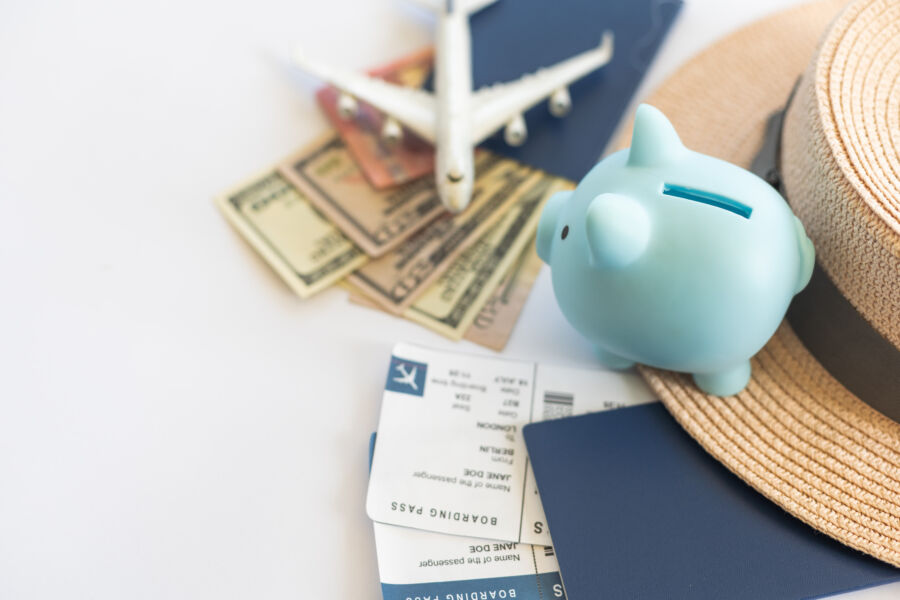
Egypt Trip Cost: Luxury Nile Cruise from $999/Week
Planning a trip to Egypt? You’re in for an unforgettable adventure! From the iconic pyramids to the stunning Nile River, Egypt offers a wealth of history and culture. But before you pack your bags, you’re probably wondering about the cost. A typical 10-day trip to Egypt for two people in 2025 can cost around $3,300, including flights, accommodation, food, and activities.
Egypt can be a budget-friendly destination if you plan wisely. You can find affordable lodging options, from hostels to mid-range hotels. Street food and local restaurants offer tasty meals at low prices. Many top attractions have reasonable entry fees too.
Want to splurge a bit? Egypt has luxury options too. You can book a fancy Nile cruise, stay in high-end resorts, and take private tours of ancient sites. No matter your budget, Egypt has something for everyone.
Contents
- Key Takeaways
- Understanding Egypt Trip Costs
- Cost Breakdown by Category
- Estimated Daily Expenses
- Tipping Culture and Expenses
- Flights and Transportation
- Choosing Your Arrival Airport
- Domestic Travel Options
- Public vs Private Transportation
- Accommodation Options
- Hotels Versus Hostels
- Booking for Best Value
- Unique Lodging Experiences
- Food and Dining
- Local Eats on a Budget
- Restaurant Dining Costs
- Self-Catering Savings
- Sightseeing and Attractions
- Main Tourist Attractions
- Free Activities and Sights
- Guided Tours Versus Independent Visits
- Activities and Experiences
- Adventure and Outdoor Activities
- Cultural and Historical Experiences
- Relaxation and Leisure Options
- Budgeting and Saving Tips
- Travel Discounts and Deals
- Managing Money While Traveling
- Avoiding Tourist Traps
- More Travel Guides
Key Takeaways
- Egypt trip costs vary widely, from budget-friendly to luxury options
- Accommodation and transportation are the biggest expenses
- Careful planning can help you save money without sacrificing experiences
Understanding Egypt Trip Costs
Planning a trip to Egypt can be exciting, but it’s important to have a clear picture of the costs involved. Let’s break down the key expenses you’ll encounter and how to budget effectively for your Egyptian adventure.
Cost Breakdown by Category
Accommodation in Egypt varies widely. Budget hotels start at $20 per night, while luxury resorts can cost $200+. Mid-range options average $70-120 nightly. Food is generally affordable, with street food meals under $5 and restaurant dinners around $10-15 per person.
Transportation costs depend on your chosen method. Domestic flights between cities run $50-100 one-way. Taxis are cheap, with short rides costing $2-5. For longer distances, consider overnight trains ($20-50) or buses ($5-15).
Entry fees for major attractions like the Pyramids ($10-15) and Luxor Temple ($10) add up quickly. A Nile cruise, a popular activity, ranges from $50-150 per night depending on luxury level.
Estimated Daily Expenses
Your daily budget in Egypt can vary greatly based on your travel style. Here’s a rough breakdown:
- Budget traveler: $30-50 per day
- Mid-range traveler: $80-120 per day
- Luxury traveler: $200+ per day
These estimates cover accommodation, food, local transportation, and some activities. Remember to factor in pre-trip expenses like flights and visas. A 10-day trip for two, including international flights, typically costs $2,500-4,000 for mid-range travelers.
Tipping Culture and Expenses
Tipping, or “baksheesh,” is an important part of Egyptian culture. It’s expected in many situations and can significantly impact your budget. Here are some tipping guidelines:
- Restaurant servers: 10-15% of the bill
- Hotel staff: $1-2 per bag or service
- Tour guides: $5-10 per person per day
- Taxi drivers: Round up the fare or add 10%
In some tourist areas, you might be asked for tips for small services or directions. Budget an extra $5-10 per day for unexpected tipping situations. While it may seem overwhelming, embracing the tipping culture can lead to better service and more positive interactions during your trip.
Flights and Transportation

Getting to and around Egypt involves some key decisions that impact your trip cost. Let’s break down your options for arriving in Egypt and navigating the country once you’re there.
Choosing Your Arrival Airport
Cairo International Airport is Egypt’s main gateway for international flights. It’s usually the cheapest option for flying into Egypt. You might find deals on flights to Cairo from major cities for $600-$800 round trip. But don’t rule out other airports like Hurghada or Sharm El Sheikh. They can be pricier to fly into, but might save you money on domestic travel later.
Look for sales and off-season deals to cut costs. Booking 2-3 months ahead often gets you the best prices. Red-eye flights tend to be cheaper too. And if you’re flexible with dates, use fare comparison tools to find the lowest rates.
Domestic Travel Options
Once in Egypt, you’ve got choices for getting around. Domestic flights are fast but pricey, usually $60-$100 one-way between major cities. They’re great if you’re short on time.
Trains are a cheaper option, especially for overnight trips. The Cairo to Luxor train costs about $20 for a seat or $80 for a sleeper cabin. Buses are even more budget-friendly, with intercity rides often under $10.
For shorter trips, consider renting a car. It gives you freedom to explore at your own pace. Car rental rates start around $30 per day. Just be ready for some chaotic traffic in bigger cities!
Public vs Private Transportation
In cities, public transport is dirt cheap. Cairo’s metro costs less than $1 per ride. Local buses are even cheaper, but they can be crowded and confusing for tourists.
Taxis and ride-hailing apps offer more comfort. They’re still affordable by Western standards – a 30-minute ride might cost $5-$10. Always agree on a price before starting your trip in regular taxis.
For day trips or multi-city tours, private drivers or guided tours can be worth the extra cost. They typically run $50-$100 per day but save you hassle and time. Plus, you get insights from a local guide.
Remember, bargaining is expected for many transport services in Egypt. Don’t be shy about negotiating, especially for longer trips or multi-day hires.
Accommodation Options

Egypt offers a range of places to stay that fit different budgets and travel styles. You’ll find choices from fancy hotels to cheap hostels and unique spots.
Hotels Versus Hostels
Hotels in Egypt can be fancy or basic. Nice hotels in Cairo or Luxor might cost $75-150 per night. These often have pools, restaurants, and comfy rooms. Cheaper hotels run $30-50 and are more simple.
Hostels are way cheaper, usually $5-15 per night. You’ll share rooms and bathrooms. But they’re great for meeting other travelers. Many hostels have common areas to hang out.
Think about what matters most to you. Do you want privacy and comfort? Or would you rather save money and be social?
Booking for Best Value
To get good deals, book early. Prices go up as rooms fill. Booking.com lets you compare lots of places at once.
Look for special offers. Some hotels give discounts if you stay several nights. Others include free breakfast or airport pickup.
Be flexible with dates if you can. Prices change based on seasons and events. Avoiding busy times can save you money.
Check reviews from past guests. They give real info about cleanliness, service, and location. This helps you avoid bad surprises.
Unique Lodging Experiences
For something different, try a Nile river cruise. You sleep on a boat and see sights along the river. Prices vary but expect $100+ per night.
Desert camps let you sleep under the stars. Some are basic tents, others more luxurious. Costs range from $50-200 per night.
Vacation rentals are another option. You can rent a whole apartment or house. These work well for groups or longer stays. They often have kitchens to save on food costs.
Homestays let you live with a local family. You’ll see real Egyptian life and maybe learn some Arabic. Prices vary but are often $20-40 per night.
Food and Dining

Eating in Egypt can be a delicious adventure without breaking the bank. You’ll find tasty options ranging from cheap street food to fancier restaurant meals.
Local Eats on a Budget
Street food in Egypt is a budget traveler’s dream. You can grab a filling falafel sandwich for just $1. Kushari, a popular mix of rice, pasta, and lentils, costs about $2 per plate. Shawarma wraps are another cheap and yummy option at around $2-3 each.
For sit-down meals at local spots, expect to pay $3-5 for a hearty dinner. Try ta’meya (Egyptian falafel), ful medames (fava beans), or molokhia (a green soup). These places often don’t have English menus, so be ready to point or learn a few Arabic food words.
Don’t forget to try Egyptian desserts like basbousa or umm ali. Street vendors sell these sweet treats for about $1-2 per serving.
Restaurant Dining Costs
Eating at mid-range restaurants will cost more, but it’s still pretty affordable. You’ll pay about $10-15 per person for a nice meal in Cairo or other tourist areas. This usually includes an appetizer, main course, and maybe a drink.
Fancy hotel restaurants or upscale places in tourist zones can charge $20-30 or more per person. These spots often have great Nile views or serve international cuisine.
Tipping is expected in restaurants. Add about 10% to your bill unless a service charge is already included.
Self-Catering Savings
Buying groceries and cooking some meals yourself can save you lots of money. Local markets are cheap and fun to explore. Here are some sample prices:
- Bread (500g): $0.50
- Eggs (10): $1.30
- Cheese (1kg): $3.20
- Apples (1kg): $1.30
- Milk (1 liter): $0.84
If your hotel has a fridge, stock up on breakfast items and snacks. Making your own breakfast and lunch can easily cut your daily food costs in half.
Sightseeing and Attractions

Egypt offers a wealth of amazing sights and experiences. You’ll find ancient wonders, bustling markets, and natural beauty around every corner. Let’s explore the must-see attractions and ways to make the most of your sightseeing budget.
Main Tourist Attractions
The Pyramids of Giza are Egypt’s crown jewel. You’ll pay about $10-15 to enter the complex. For an extra fee, you can go inside the Great Pyramid. The nearby Sphinx is included in your ticket.
Luxor Temple is another highlight. Entrance costs around $10. It’s especially magical at night when lit up.
The Valley of the Kings, home to Tutankhamun’s tomb, charges about $20 for entry. Some tombs have extra fees.
In Cairo, the Egyptian Museum houses incredible artifacts. Tickets are about $10. The new Grand Egyptian Museum is set to open soon.
Free Activities and Sights
Not everything in Egypt costs money. You can wander the colorful Khan el-Khalili bazaar in Cairo for free. It’s great for people-watching and soaking up the atmosphere.
Many mosques let visitors in without charge. Just remember to dress modestly and remove your shoes.
Strolling along the Nile costs nothing. In Aswan, you can watch feluccas (traditional sailboats) glide by at sunset.
Public beaches in Alexandria and Hurghada are free. They’re perfect for a budget-friendly day by the sea.
Guided Tours Versus Independent Visits
Guided tours can enhance your experience at major sites. A knowledgeable guide brings history to life. Full-day tours covering multiple attractions often range from $30-100 per person.
You can book things to do and attractions in advance online. This saves time and sometimes money.
Going solo is cheaper. You’ll have more flexibility but miss out on expert insights. Audio guides are a good middle ground, usually costing $5-10.
For places like Abu Simbel, a tour might be worth it. The logistics of getting there alone can be tricky.
Remember, you should expect to bargain for many services in Egypt. Don’t be afraid to negotiate prices for guides or taxis.
Activities and Experiences

Egypt offers a wealth of activities and experiences to suit all interests. From thrilling adventures to cultural immersion and relaxation, you’ll find plenty to keep you busy during your trip.
Adventure and Outdoor Activities
Ready for some excitement? Take a hot air balloon ride over Luxor’s ancient temples at sunrise. It’s pricey at around $100 per person, but the views are unforgettable. For a cheaper thrill, try sandboarding in the desert near Siwa for about $20.
Scuba diving in the Red Sea is a must for underwater enthusiasts. A day trip with two dives costs about $60-80 in Dahab. Snorkeling is a budget-friendly alternative at $20-30 for equipment rental and a boat trip.
Camel rides are popular but can be touristy. For a more authentic experience, you can book a multi-day desert safari. Prices start at $150 per day, including meals and camping.
Cultural and Historical Experiences
No trip to Egypt is complete without visiting the pyramids. Entrance to the Giza complex costs about $10. Hire a guide for $20-30 to learn the fascinating history.
Explore the Valley of the Kings in Luxor. A general admission ticket is around $15, but you’ll need to pay extra to enter certain tombs.
Take a felucca ride on the Nile at sunset in Aswan. It’s a peaceful way to end the day and costs about $10-15 per person for an hour.
For a deeper cultural experience, try a cooking class in Cairo. Learn to make traditional Egyptian dishes for around $40-50.
Relaxation and Leisure Options
Unwind with a Nile cruise from Luxor to Aswan. Prices vary widely, but budget around $300-500 for a 3-4 day trip. It’s a great way to see multiple sites while relaxing.
Treat yourself to a hammam experience in Cairo or Alexandria. A traditional bath and massage costs $20-40, depending on the venue.
Beach lovers should head to the Red Sea resorts. A day pass to a private beach club in Hurghada costs about $15-25, including a sunbed and umbrella.
For a unique experience, camp under the stars in the White Desert. Tours start at $100 per day, including transport and meals.
Budgeting and Saving Tips

Planning a trip to Egypt on a budget takes some savvy strategies. You can stretch your Egyptian pounds further and keep your trip costs down with a few smart moves.
Travel Discounts and Deals
Look for package deals that bundle flights, hotels, and tours. These can save you big bucks compared to booking everything separately. Sign up for airline newsletters to catch flash sales on flights to Egypt. Try visiting during the shoulder season (April-May or September-October) for lower prices and fewer crowds.
Check out discount sites like Groupon for deals on activities and tours in Egypt. Some attractions offer student or senior discounts, so bring your ID. Buy a Cairo Pass if you plan to see lots of museums and sites – it can save you money on entry fees.
Managing Money While Traveling
Get a travel credit card with no foreign transaction fees to avoid extra charges. Tell your bank you’re going to Egypt so they don’t freeze your card. Bring some cash to exchange, but use ATMs for the best rates once you arrive.
Stick to your daily budget by tracking expenses in a notebook or app. Set spending limits for souvenirs and extras. Look for free activities like walking tours or visiting mosques to balance out pricier excursions.
Eat at local spots instead of tourist restaurants to save on food costs. Buy snacks and water at grocery stores rather than hotel mini-bars or tourist areas.
Avoiding Tourist Traps
Be wary of “friendly” locals who offer to be your guide, as they often expect payment. Research typical prices for taxis, tours, and goods to avoid getting ripped off. Learn to haggle politely but firmly in markets.
Skip overpriced Nile dinner cruises and opt for an affordable felucca ride instead. Don’t buy “ancient artifacts” from street vendors, as they’re usually fake and illegal to export anyway.
Stay alert for common scams like inflated prices or rigged taxi meters. Trust your instincts and walk away from anything that seems fishy. With some street smarts, you can dodge tourist traps and keep more cash in your pocket.



